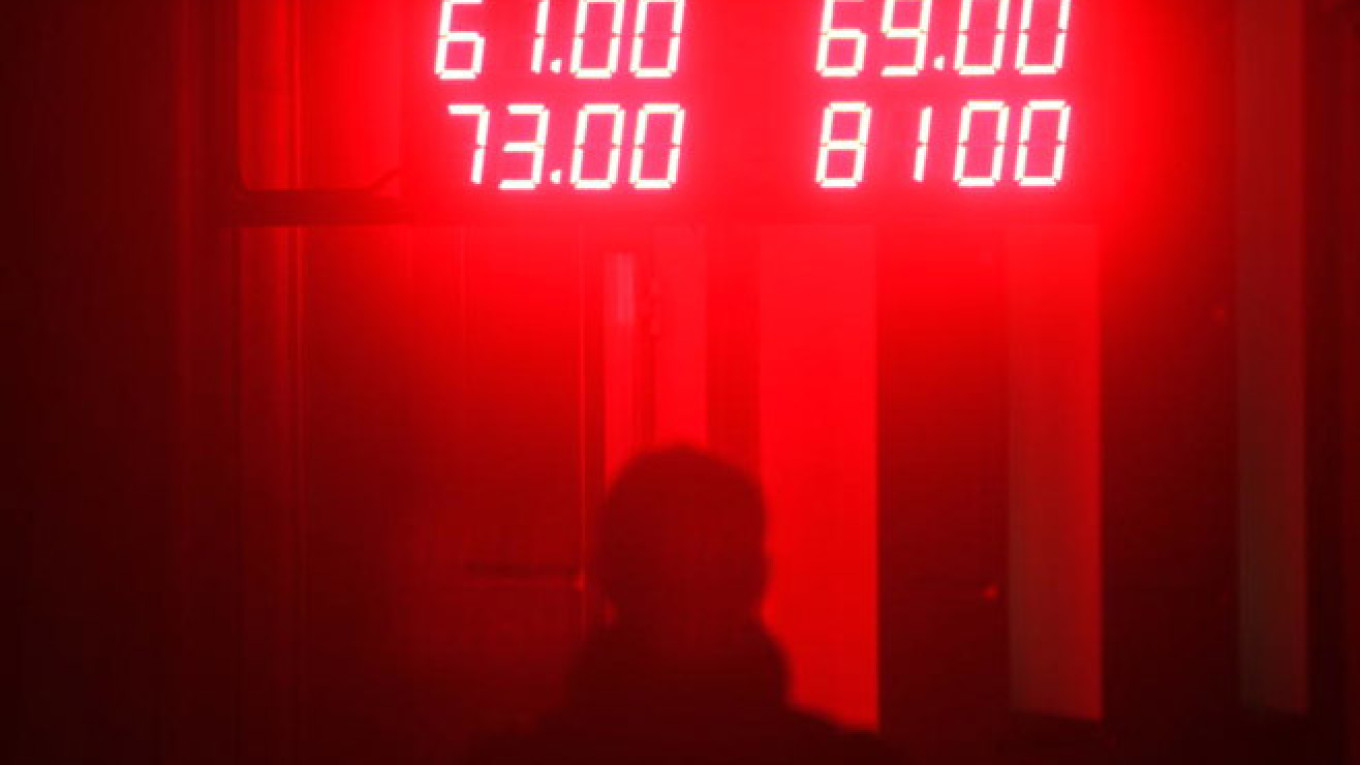Last summer, Russia's entire adult population turned into experts on football. It turned out that the head coach of Russia's national team, Fabio Capello, had chosen the wrong team members, used the wrong tactics and failed to properly inspire his Russian players. The interest in football waned by last December, but in its place everyone became an armchair expert on macroeconomics.
Now millions of Russians eagerly debate whether the monetary authorities have taken the right course in the current crisis. And, of course, they generally conclude that the Central Bank — the government body responsible for the stability of the country's monetary system — committed a disastrous mistake. How else can we explain the fact that the dollar and euro now cost twice as much and that tens of millions of Russians are now poorer than they were just a short time ago?
Football coaches, as well as true football experts, know that bad results are not always due to wrong decisions. Russian national team player Sergei Ignashevich makes mistakes from time to time, but that does not make him an unreliable center back on the field. The same is true of monetary policy: The macroeconomic results of 2014 were bad, but that does not mean that the Central Bank acted improperly.
And this is not only because the Central Bank had no control over the main factors contributing to the economic crisis: Russia's foreign policy failures that led to financial sanctions, investor flight and the fall in the price of oil, Russia's main export. Let's look at the main elements of Russia's monetary policy in 2014 and consider what, if anything could have been done differently.
First, the Central Bank refused to set a fixed exchange rate. It is easy to imagine what would have happened if the bank had fixed the rate at, say, 35 rubles at the beginning of 2014. By September the Central Bank would have been left without reserves and the country without a banking system. At that point, circumstances would have necessitated a return to a floating exchange rate.
It would have been impossible for a fixed exchange rate to cope with external shocks on the scale of the sanctions and steep drop in oil prices that occurred. Of course, the Central Bank should have early on begun explaining loudly and clearly how a drop in oil prices would affect the country's floating exchange rate. The banks and businesses that already understood the concept were better prepared than they had been in 2008, but the general public was not.
Second, in October 2014 the Central Bank decided to abandon interventions to "smooth out" the exchange rate. The decision itself was simple because currency reserves would not have lasted long if the Central Bank had attempted to "smooth out" such wide fluctuations in the exchange rate. The question remains as to whether interventions were needed in principle. The answer to that is not so obvious because each abrupt change in the exchange rate causes massive losses to the real economy.
Third, the Central Bank adopted measures on Dec. 16-17, 2014 to halt "currency speculation" and panic. There is still no evidence that anyone tried to strategically manipulate the exchange rate. With a floating rate, that would have been a very risky tactic for the potential manipulator.
Should the Central Bank have acted earlier to raise the key interest rate to "staunch" the run on the ruble and thereby have prevented "Black Monday"? Perhaps the Central Bank was slow in acting — but did that delay really have a significant influence on events?
The answers to these questions are not even clear to those who have ready explanations for why Russia's national football team has been struggling lately.
Konstantin Sonin, a columnist for Vedomosti, is professor of economics at the Higher School of Economics in Moscow.
A Message from The Moscow Times:
Dear readers,
We are facing unprecedented challenges. Russia's Prosecutor General's Office has designated The Moscow Times as an "undesirable" organization, criminalizing our work and putting our staff at risk of prosecution. This follows our earlier unjust labeling as a "foreign agent."
These actions are direct attempts to silence independent journalism in Russia. The authorities claim our work "discredits the decisions of the Russian leadership." We see things differently: we strive to provide accurate, unbiased reporting on Russia.
We, the journalists of The Moscow Times, refuse to be silenced. But to continue our work, we need your help.
Your support, no matter how small, makes a world of difference. If you can, please support us monthly starting from just $2. It's quick to set up, and every contribution makes a significant impact.
By supporting The Moscow Times, you're defending open, independent journalism in the face of repression. Thank you for standing with us.
Remind me later.


